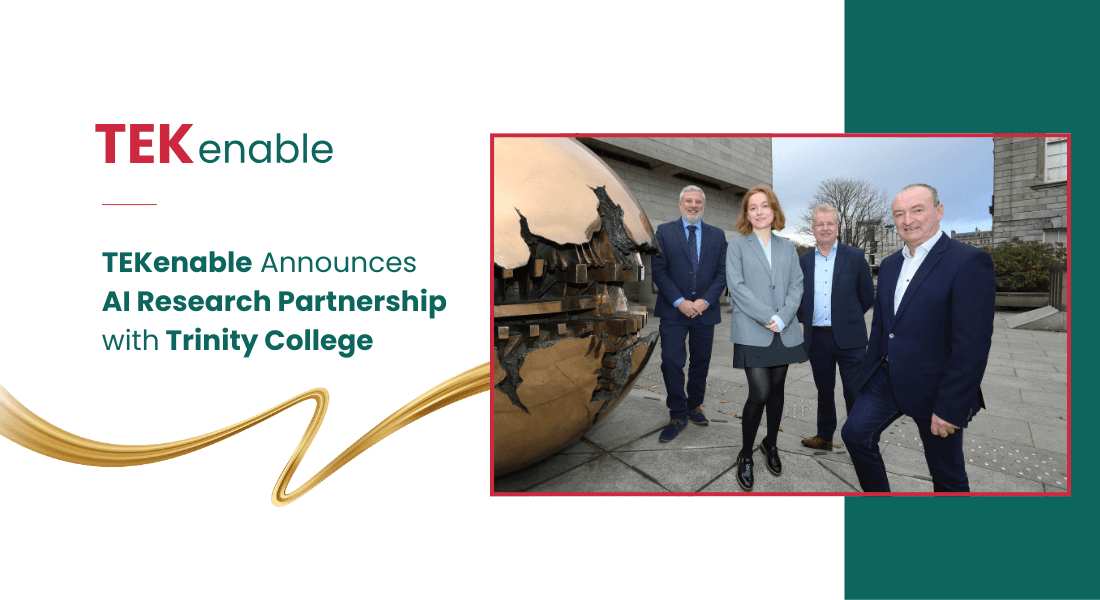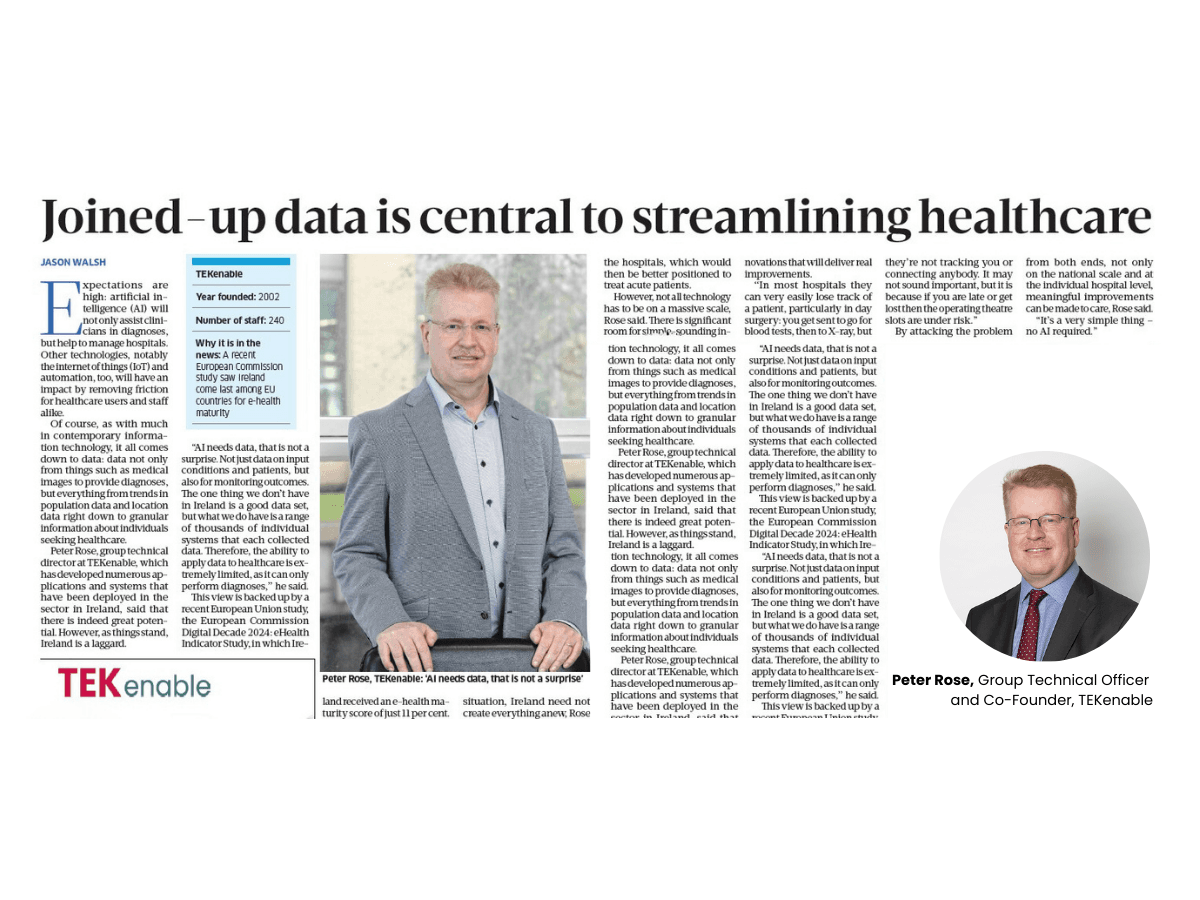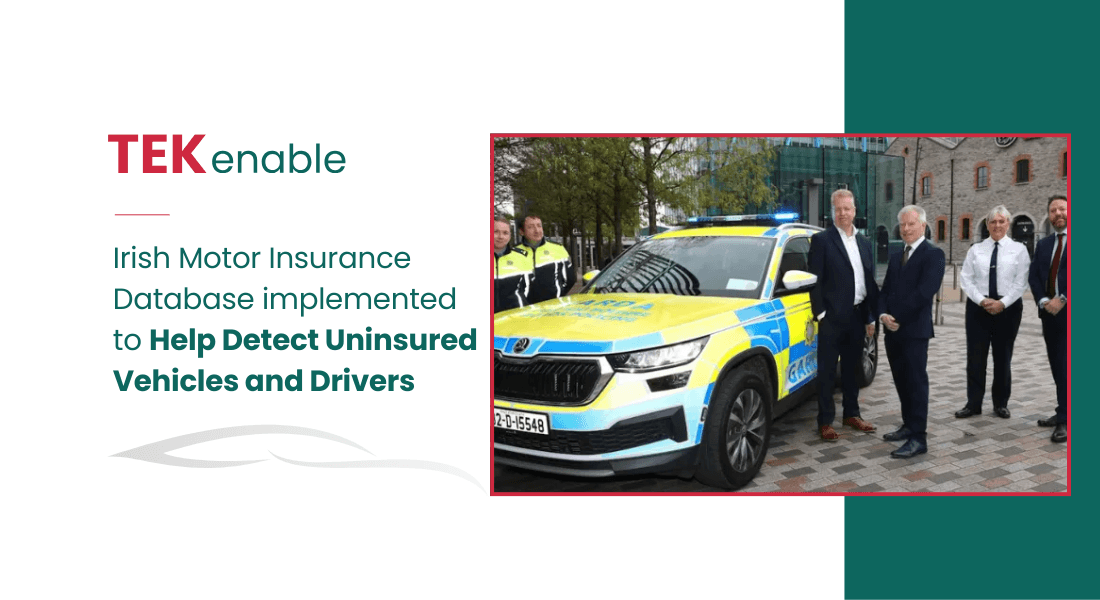TEKenable CTO Peter Rose was interviewed by Priscillia Charles, for VTQ Magazine Issue 4. The interview text is reproduced below:
Peter, you have had an impressive career as an expert in providing technical support and consultancy in a multitude of sectors from Finance to Pharmaceuticals for the past 30 years.
Tell us about your background, how did you start in the IT field?
I knew computers were “my thing” from early childhood. As a work placement from my Computer Science degree, I joined a QA (testing) team at a company in Bath, UK – they developed Safety Critical Software. I ended up working with that company for ten years before moving to Ireland.
You are one of the founding members of TEKenable. Where did the idea come from to start the business?
I founded TEKenable with Nick Connors. We were both working at an Internet “boom to bust” business. I was the CTO and Nick was the Managing Director of the Ireland office. When the company went bankrupt, we had not been paid for a long time and needed an income. We started a technology company at a time of unprecedented lack of demand in order to put food on the table and never looked back!
TEKenable focuses on a wide range of services, including IT Consultancy, Managed Services and Digital Transformation. What are your observations on how those types of services have developed over the years?
Digital Transformation is essentially the same value proposition that Mainframes promised in the 1960s. We enable businesses to better engage with customers, to empower employees, to optimize processes and to offer new services in ways not previously possible. The tools and techniques we use improve continuously, offering more and more return on investment every year.
Speaking of Digital Transformation, you recently spoke about the future of mobile phones at the Siemens/ IRDG Dublin conference on Digital Transformation. In your opinion, how is Digital Transformation impacting us and why does it matter?
Companies – from large to small – are operating in a world where business models are changing at light speed. Even large traditional industries that are somewhat shielded from radical change by regulation have found themselves under threat. The Payment Services Directive (PSD2) has forced banks to transform or be rendered irrelevant. Car insurance models are moving inexorably from singleannual fee-based policies with crude risk assessment to pay-per-mile by location and time of day. These are both examples of huge changes happening at speed. Digital Transformation is how companies can position themselves to respond, meet the challenges head on and lead the charge. The customer benefits from slicker service, lower costs and better services were previously not possible.
You also mentioned some of the latest real time language translator technologies, now available to everyone travelling or using them in their daily lives. Where do see those apps going?
Anybody with a smart phone and an internet connection can now have a conversation with someone whose language they do not speak. It is a little stilted right now, but soon the technology will vanish into the background as all good technologies do. Phone calls will automatically detect language and translate in real-time between callers without this seeming anything other than totally normal.

Do you think they will become essential in our daily lives and if so, why?
Food, water and shelter are essential and perhaps Wi-Fi. I think seamless auto-translation operating as an inherent part of our communication networks will be something that we grow accustomed to, begin to rely on and no longer notice unless it is taken away. The impact could be enormous, helping to break down social barriers and foster global collaboration that would otherwise not be possible. Most conflicts in the world arise from a perception of difference rather than a recognition of common humanity. If technologies like these help remove perceived differences and foster bridge building across cultures, perhaps there will be less conflict.
Speaking of real-time technologies, machine translation is now becoming more prominent and efficient in many businesses. In your opinion, is such a technology capable of performing without humans in the long run? If so, why?
Translation of written text, yes, but spoken words are a totally different challenge. I have a book on AI from the 1980s on my bookshelf that gave the phrase “The old man” as an example. We all know what that means but if you add two more words “The old man the boats”, the ambiguity of “man” becomes clear, and the meaning changes totally. In written text, this can be recognized and handled as the full text is available. In spoken conversation the true translation of meaning cannot be derived until all words are spoken but deciding when that has happened is a human judgement. Dialects, slang, catch phrases and the fact that much of humancommunication is non-verbal are further challenges that will keep humans involved for some time to come.
You concluded your speech by looking at the future, pointing out that technology, in particular mobile phones, “will need to be able to understand who we are, what we want to do, where and who with”. What do you think could be impediments against such development?
I think that hyper-personalization is where we are going. For example, you will ask your phone to book a meeting with Tom for Tuesday to discuss AI, and the phone will determine which Tom based on the subject matter, discover that Tom is in Paris, arrange your flights, use your frequent flyer points and book your favorite hotel.
It can do this as a result of learned behaviors, using a model of the world that understands the concepts and capabilities of people, flights and other concepts as well as a platform for apps to register these capabilities. The beginning of this is already in all smart phones. Social acceptance could be the issue. We need a debate on just how much we want our technology to understand about us, and the potential for abuse that comes from that. Just look at Facebook today to see a simple case of what I am describing.
Any projects that you would be working on that you would like to share with our readers?
Areas of interest for our R&D team at the moment are Cyber Security and AI in the context of software solutions. The cyber threat is possibly the single biggest issue facing business today, so we are creating products and services to help manage that risk. In AI we are working on natural language interfaces (such as chat bots), and predictive analytics. We are also revamping our web site – again – that can be a real headache!





